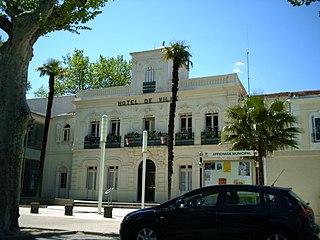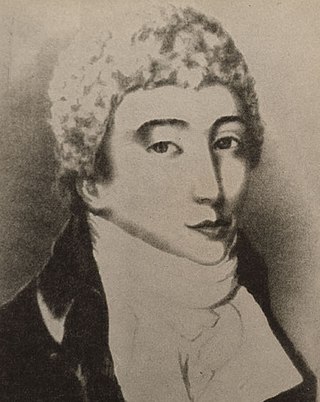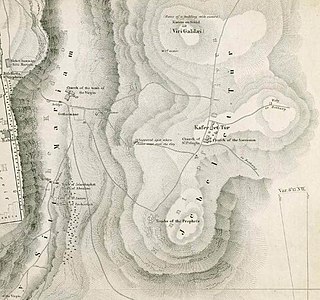Related Research Articles

According to Abrahamic religions, Aaron was a Jewish prophet, a high priest, and the elder brother of Moses. Information about Aaron comes exclusively from religious texts, such as the Hebrew Bible, the New Testament, and the Quran.
Zerah or Zérach refers to several people in the Hebrew Bible.

Asa was, according to the Hebrew Bible, the third king of the Kingdom of Judah and the fifth king of the House of David. Based on the Biblical chronology, Biblical scholars suggest that he reigned from the late 10th to early 9th century BCE. He was succeeded by Jehoshaphat, his son. According to Edwin R. Thiele's chronology, when Asa became very ill, he made Jehoshaphat coregent. Asa died two years into the coregency.

Zerah Colburn was an American child prodigy of the 19th century who gained fame as a mental calculator.

The Abravanel family, also spelled as Abarbanel, Abrabanel, Avravanel, Barbernell, or Barbanel – literally meaning Ab ("father") rabban ("priest") el – is one of the oldest and most distinguished Jewish families. It first achieved prominence on the Iberian peninsula during the Middle Ages. Its members claim to trace their origin to the biblical King David. Members of this family lived in Seville, Córdoba, Castile-Leon, and Calatayud. Seville is where its most prominent representative, Don Judah Abravanel, once dwelt.

Jewish writers in England during the pre-expulsion period of the eleventh through the thirteenth centuries produced different kinds of writing in Hebrew. Many were Tosafists; others wrote legal material, and some wrote liturgical poetry and literary texts.
Isaac the Blind, was a French rabbi and a famous writer on Kabbalah. The Aramaic epithet "Saggi Nehor" means "of Much Light" in the sense of having excellent eyesight, an ironic euphemism for being blind. Some historians suspect him to be the author of the Book of the Bahir, an important early text of Kabbalah. Others characterize this view as an "erroneous and totally unfounded hypothesis".

Lunel is a commune in the Hérault department in southern France. Lunel is located 21 km (13 mi) east of Montpellier and 28 km (17 mi) southwest of Nîmes (Gard). Lunel station has rail connections to Narbonne, Montpellier, Nîmes and Avignon.

Estella (Spanish) or Lizarra (Basque) is a town located in the autonomous community of Navarre, in northern Spain. It lies south west of Pamplona, close to the border with La Rioja and Álava.

Simeon was the second of the six sons of Jacob and Leah, and the founder of the Israelite tribe, The Tribe of Simeon, according to the Book of Genesis of the Hebrew Bible. Biblical scholars regard the tribe as having been part of the original Israelite confederation. The tribe is absent from the parts of the Bible. Some scholars think that Simeon was not originally regarded as a distinct tribe. However, many Biblical scholars believe that Simeon isn't regarded as a distinct tribe due to the scandal involving Zimri. The Blessing of Moses before his death had omitted the Tribe of Simeon because Jacob had castigated him Genesis 49:5-7, and because of the terrible affair of Baal-peor.

Zorach or Zorah Wahrhaftig, also known as Zerach Warhaftig, was an Israeli rabbi, lawyer, and politician. He was a signatory of Israel's Declaration of Independence.

Berechiah Berak ben Isaac Eisik Shapira was a Galician preacher who was educated by Nathan Shapira, rabbi of Kraków, and was appointed preacher of that city, where he spent most of his life. He ultimately left for Jerusalem, but died en route at Constantinople.
Abraham ben Isaac of Narbonne (c. 1080-85 – 1158) was a Provençal rabbi, also known as Raavad II, and author of the halachic work Ha-Eshkol.
Menahem ben Aaron ibn Zerah was a Navarrese rabbi and codifier born in the Kingdom of Navarre, probably at Estella, in the first third of the 14th century.

Aaron Philip Hart was a businessman in Lower Canada and one of the first Jews to settle in the colony. He is considered the father of Canadian Jewry. He was one of the founding members of the Spanish and Portuguese Synagogue of Montreal, a wealthy man with numerous landed estates, and the married father of four sons, including the future politician Ezekiel Hart, and four daughters.
Judah ben Jehiel,, more usually called Judah Messer Leon, was an Italian rabbi, teacher, physician, and philosopher. Through his works, assimilating and embodying the intellectual approach of the best Italian universities of the time, yet setting it inside the intellectual culture of Jewish tradition, he is seen as a quintessential example of a hakham kolel, a scholar who excelled in both secular and rabbinic studies, the Hebrew equivalent of a Renaissance man. This was the ideal he tried to instil in his students. One of his students was Yohanan Alemanno.
Hachmei Provence refers to the hakhams of Provence, now known as Occitania, France that was a great Torah center in the times of the Tosafists. The phrase means "wise ones of Provence"; hakham "wise one, sage" is a Sephardic and Hachmei Provençal term for a rabbi.
Menahem or Menachem was a Jewish king.

The Jewish Cemetery on the Mount of Olives is the oldest and most important Jewish cemetery in Jerusalem. The Mount of Olives has been a traditional Hebrew/Jewish burial location since antiquity, and the main present-day cemetery portion is approximately five centuries old, having been first leased from the Jerusalem Islamic Waqf in the sixteenth century. The cemetery contains anywhere between 70,000 and 150,000 tombs, including the tombs of famous figures in early modern Jewish history. It is considered to be the largest and holiest historical Jewish cemetery on earth.
Abraham ben Joseph of Orleans was an early 12th-century French Tosafist and the son of Joseph Bekhor Shor and the brother of Saadia Bekhor Shor. Some have suggested that he is identical with Abraham ben Rabbi Joce. Many of his interpretations of the Talmud are quoted several times in the Tosafot.
References
![]() This article incorporates text from a publication now in the public domain : Ginzberg, Louis (1901). "Aaron ben Zerah". In Singer, Isidore; et al. (eds.). The Jewish Encyclopedia . Vol. 1. New York: Funk & Wagnalls. p. 22.
This article incorporates text from a publication now in the public domain : Ginzberg, Louis (1901). "Aaron ben Zerah". In Singer, Isidore; et al. (eds.). The Jewish Encyclopedia . Vol. 1. New York: Funk & Wagnalls. p. 22.